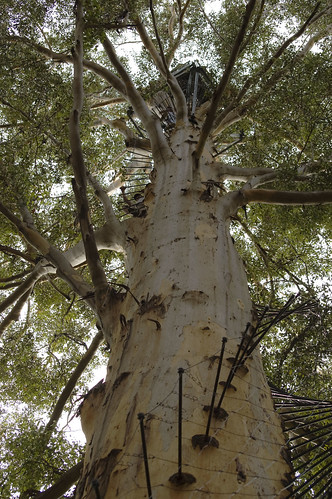
The boys get to the top of Glouchester Tree
We got to Pemberton early evening, settled into the Pemberton Motel and upon a little investigation found ourselves deep in the splendour of the Karri forests. It was with no small sense of wonder that we explored, head tilted, mouth open and eyes wide. Growing up to 90 metres high, the Karri trees (eucalyptus diversicolour) are one of the tallest hardwoods in the world, the Californian Redwood, at more than 100 metres, is thought to be the tallest. The main belt of Karri forest grows south from Nannup to Manjimup, through Pemberton, then east towards Denmark, and Torbay, near Albany and is a truly wonderful sight.
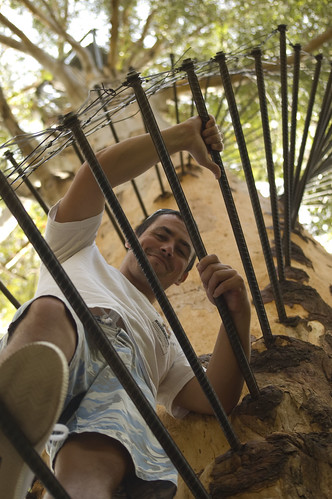
Phil climbing Glouchester Tree
Having spent so long in the treeless wonder of the Outback, that vast expanse of struggling shrubs and hardy, wizened vegetation, the experience of the Karri forests was exhilirating and staggering. They are beautiful trees and the wonder of the South-West. They have a straight trunk with perfectly smooth bark, which is shed each year. The outer bark changes colour as it matures, so that the trunks are multi-coloured in different shade of pink, orange, and silver-white.
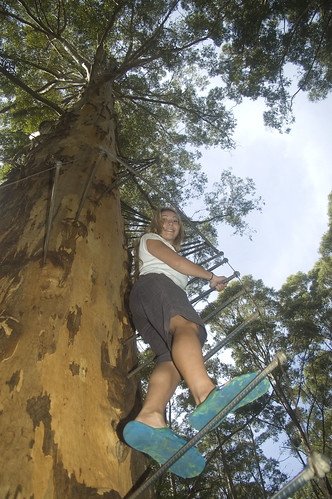
This tree has a 61m climb to the top, I'm 3m off the ground here, this is as high as I got
In Pemberton, the Gloucester National Park is the home of the Gloucester Tree, a 61 metre tree that was once a fire lookout, one of many in a network of lookouts built in the Karri forests between 1937 and 1952, and the only one surviving, if only as a lookout for tourists. It is a hair-rising climb by hand and foot up the steel pegs that coil their way upward, but the view at the top is breathtaking as you look over the canopy. It occured to a few of us, as we stood at its base and looked at the sign, that more or less told everyone not to climb if they thought they might fall, that in the minefield of hidden hazards and potential dangers even the simplest of activities contain, and the surge of rules, guidelines and Health and Safety instructions about everything and anything from fitting a lightbulb (working at heights) to picking your nose (unlicensed mining) that there would be more fuss, shall we say, over ascending on jabbed-in steel pegs a 61 metre tree. But, as it was "Don't Fall, Mate", covered it pretty well and quite succinctly we thought.
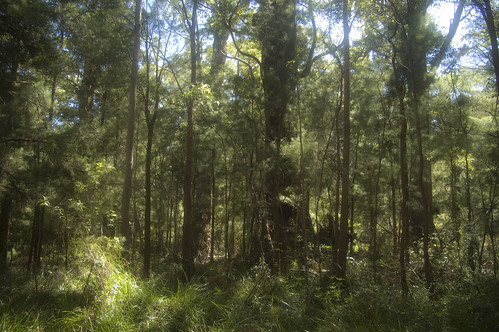
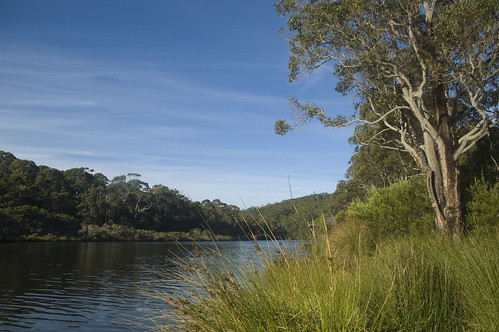
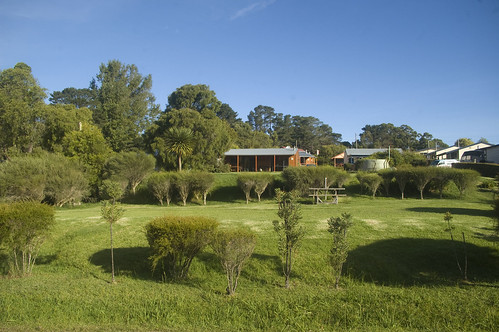
Nornalup Countryside
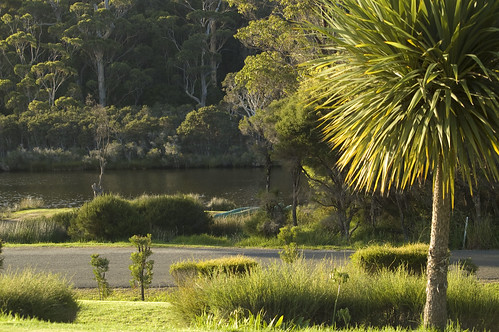
Franklin River
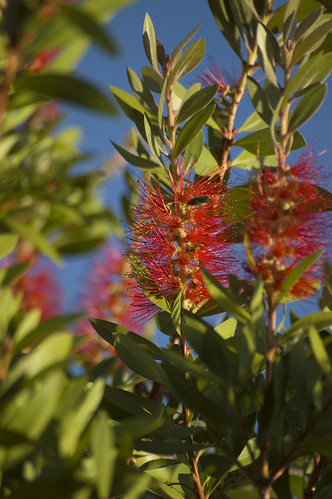
We give thanks to Tony and Marge who run, own and manage, with aplomb and joi'de verve, the Nornalup Riverside Chalets, and who not only gave us a place to stay but a canoe with which to explore the Frankland river, a hop skip and a jump away.
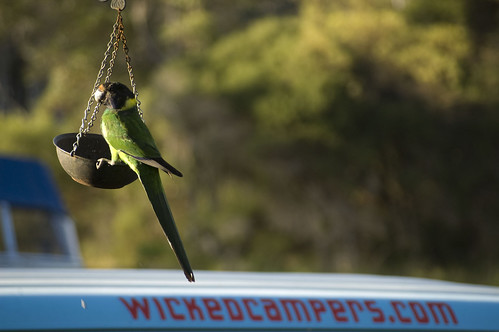
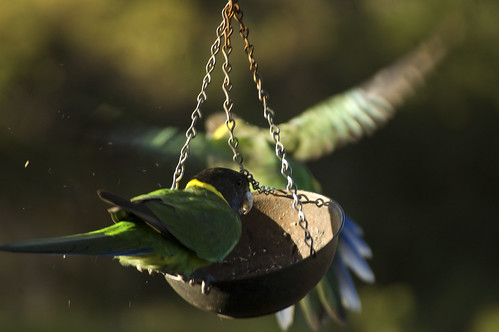
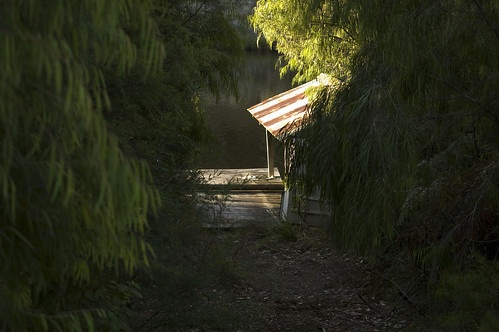
The next day and it was to the Walpole-Nornalup National Park and the Valley of the Giants. Just east of Pemberton a tree top walk has been constructed around the the giant Tingle Tree forest. Home also to the graceful Yellow Tingle (eucalyptus guilfoylei) and the grizzled, mighty Red Tingle (eucalyptus jacksoni) the Tingle trees are native to and grow only in this corner of south-west WA, with the high rainfall providing the perfect conditions for them. They are tall, elegant trees, growing up to 75 metres. The Red Tingle notable because of the thickness of its base, with a buttressed circumference of up to 20 metres as it roots in shallow soil and spreads the weight. Some of the Red Tingle trees have hollows in the trunk, making them look like they stand on two legs. A famous picture there shows a car parked inside one, as people picnic beside it.
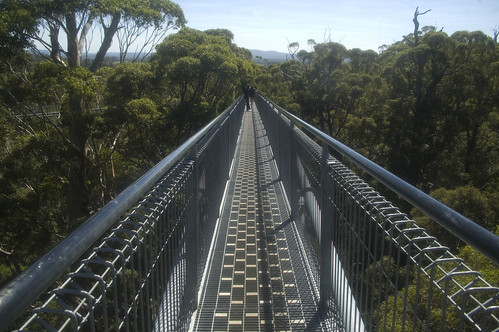
Walpole-Nornalup National Park Valley of the Giants walkway
To protect the forest from the ravages of cars parked in tree trunks, a canopy walkway was erected in the 1990s. Occupying only 4 square metres of the forest floor, it is a boardwalk, up to 40 metres high at points, that loops through the forest, and was erected with pulleys, hoists and hydraulic jacks, and supported by steel pylons. The walk meanders through the Tingle and Karri trees, and is a memorable experience as you realize that you are far up and looking at a part of a tree that you do not usually see in such up-close proximity.
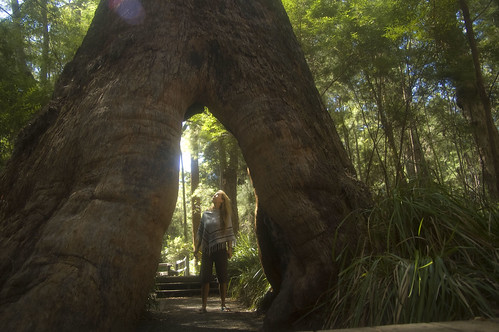
Anne walks through a Red Tingle notable because of the thickness of its base, with a buttressed circumference
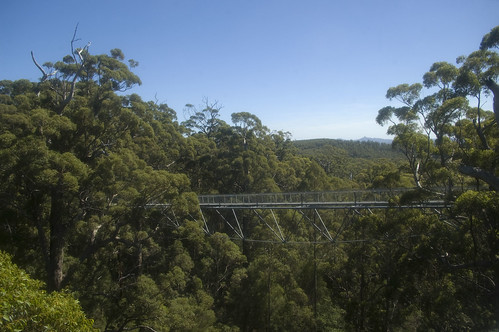
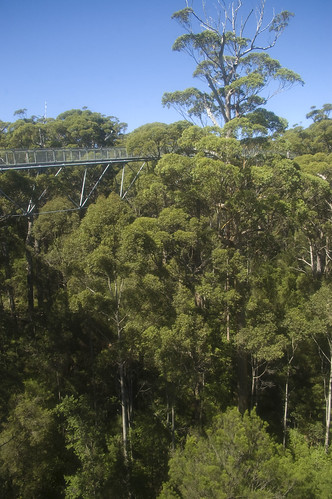
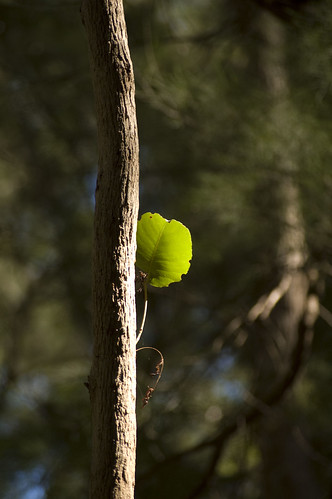
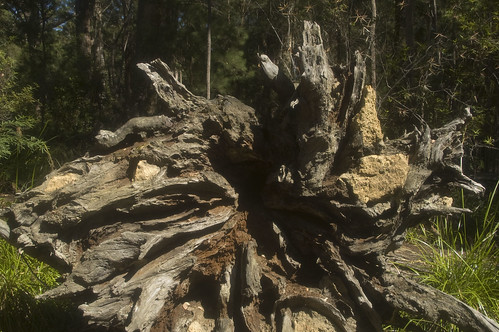
A fallen tree in the Valley of the Giants
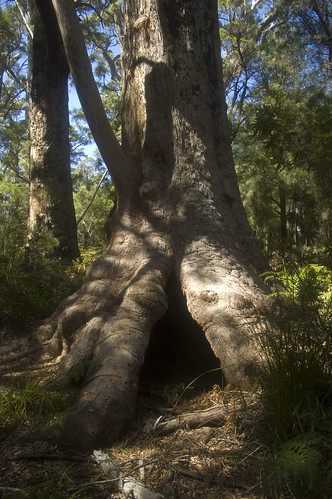
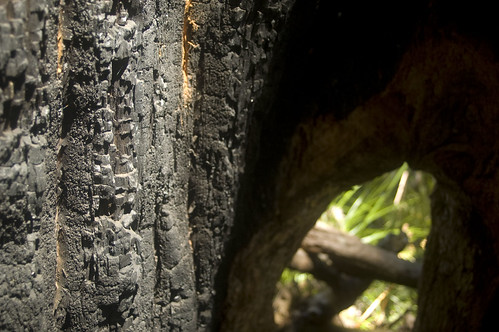
Many of the Red Tingles survive fires which eat through the centre of the tree leaving a charred walkway through the butressed base
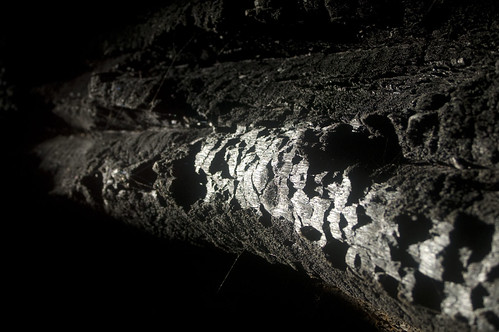





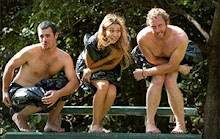
















No comments:
Post a Comment